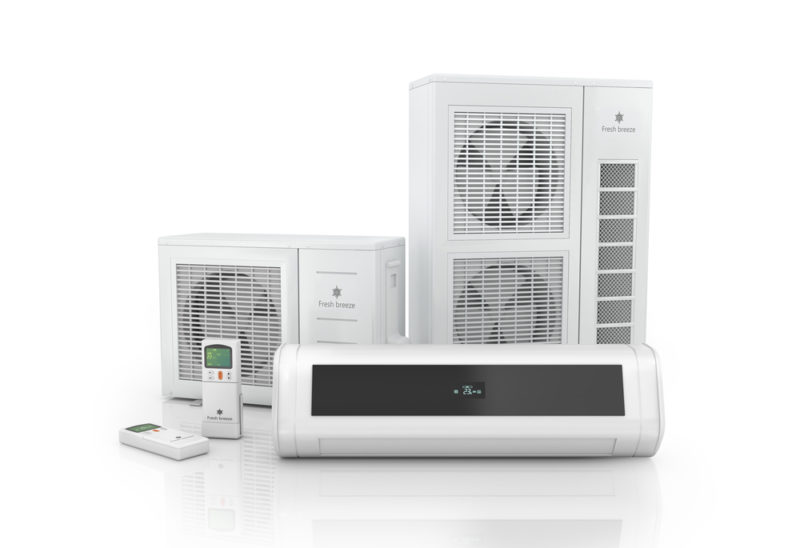Constructing a new house in Savannah, Georgia, gives you the chance to create the home of your dreams. While your dreams may not have included HVAC equipment, you have a unique opportunity to install the perfect HVAC system for your lifestyle, instead of dealing with whatever someone else installed in an already-constructed home you’re buying. We want to give you the advantages and disadvantages of each system so you know what kind of questions to ask when you give us a call.
Do You Want Central Air?
Central air, the HVAC system consisting of a network of ducts installed out of view within your home, is the most popular and prevalent type of heating and cooling option. With your furnace and AC connected to the ducts, the only visible evidence of the heating and cooling system are the small vents that blow air throughout the rooms.
Central air is one of the most affordable options for your new construction home. Ducts used to account for a high percentage of heat and energy loss. Today, ducts are designed to lose as little air as possible. We take care to install your ducts correctly the first time so they work as they should.
However, it’s impossible to reduce the energy loss to zero. One of the solutions is to install your ductwork within the parts of the home receiving treated air. Talk to your architect and contractor about dropped ceilings and other measures to hide the ductwork, or embrace the new urban style of design and leave it exposed.
Ductless Offers Certain Advantages
Ductless systems have their own distinct advantages. Zoning capabilities are easy with ductless systems. You don’t have to buy the most expensive smart thermostat and HVAC equipment to zone your ductless system. With ductless, you also experience no energy loss via ducts because the treated air doesn’t travel through anything to reach you. The ductless system produces it and delivers it in one spot.
However, ductless systems are more visible than ductwork. A ductless system is a couple feet long and projects a few inches. We can install them in parts of your rooms that are less visible, but they are still relatively large implements that sit on your walls near the ceiling. Not all homeowners want to see so much of their HVAC system. Ductless systems are often solutions for replacing window ACs in a home with no ductwork.
Does Your Heat Pump Need a Backup Furnace?
Heat pumps are wonderfully efficient ways to heat and cool homes in warm climates. Since they use the heat exchange process to heat and cool the air for your home, they work in both summer and winter, switching the direction of the heat exchange accordingly. Heat pumps are more efficient than electricity as long as the outdoor temperature is above 32 degrees.
If the temperature goes below freezing, that’s when heat pumps fall short. They either use so much energy heating the air that they stop being energy-efficient, or they can’t exchange enough heat to give you warm air at all. The temperature doesn’t go that low very often in Georgia, but it’s not unheard of. So, should you risk just going with a heat pump, or do you need a backup furnace?
In your new construction, you might choose to install a backup furnace, but you have another option: hybrid systems. We think hybrid systems are a smart idea for Georgia homeowners. They rely on heat exchange until it becomes too cold, then they switch to a backup source of fuel (like gas) to keep your home warm.
Energy Star Is the Way to Go
When choosing your new HVAC equipment, get the highest quality Energy Star product that fits within your budget. Energy Star is the government’s way of regulating energy efficiency and encouraging innovation. You’ll have the lowest energy bills if you go with Energy Star.
Let us know what you’re thinking and get all your questions answered. Your new construction should have the perfect HVAC system, and Byrd Heating and Air Conditioning wants to help you get there. Call us today at 912-373-8447.
Image provided by Shutterstock


